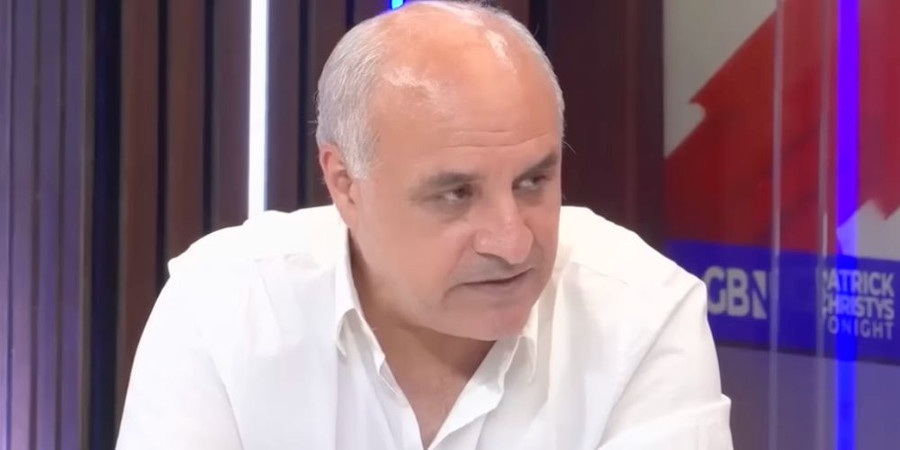Big surprises in Thursday's British election. For weeks, the pre-election polls showed a statistical tie in popular votes between Prime Minister David Cameron's Conservative Party and the Labour opposition led by Ed Miliband. It was universally agreed that neither party could reach a 326-vote majority in the House of Commons. A prominent British political website projected that Conservatives would get 280 seats and Labour 274.
But the exit poll, released when voting ended at 10 p.m., projected Conservatives with 316 seats and Labour with only 239. It showed the Scottish Nationalist Party sweeping 58 of Scotland's 59 seats and the Liberal Democrats, the Conservatives' coalition partners for five years, reduced from the 57 seats they won in 2010 to 10 this time. That turned out to be pretty close to the mark. The main error was that even this underestimated the Conservative wave.
Both major parties were suffering because of choices they had made. As party leader since 2005, Cameron made the Conservatives more metropolitan - and less traditional-oriented. The result was a strengthening of the anti-European Union, anti-immigration United Kingdom Independence Party, which was getting 13 percent in pre-election polls.
As Labour leader since 2010, Miliband abandoned Tony Blair's New Labour philosophy and turned left. But Blair's creation of a separate Scottish parliament whetted rather than slaked the desire of Scots for independence. Scotland voted against independence by only a 55 to 45 percent margin last September, after which the Scot Nats rallied to seriously contest parliamentary seats, 41 of them held by Labour.
So how did Conservatives come to win?
Scotland was a large part of it. In televised debates, SNP leader Nicola Sturgeon promised to support a minority Labour government to keep Cameron out of No. 10 Downing Street. But that raised fears that the SNP would force left-wing policies on the whole country - and demand more subsidies for Scotland. "They would take money from the West Midlands," one Conservative candidate there said, "and send it to Scotland." So Labour failed to make the gains in England predicted by the pre-election polls.
Ukip nearly matched its pre-election poll showing in popular votes, but not necessarily at the expense of Conservatives. Britons are expert tactical voters: they know the political balance in their constituencies and cast votes to achieve national results. In closely contested English seats, Ukip-inclined voters switched to Conservatives. But the Ukip vote held up in safe Labour seats, often finishing in second place. Meanwhile, Cameron ruthlessly attacked his coalition partners, the Lib Dems, in the belt running southwest from London to Cornwall.
The pre-election polls were not as far off as in 1992, when they projected an even vote and Conservatives won the popular vote by 8 points. But as in recent local, European Parliament and UK parliamentary by-elections, they seem to have under-predicted the Conservative percentage and over-predicted Labour by 2 points each. So here. Whether that's because of "shy Tories" unwilling to tell interviewers their preference, or whether it is because of a late, undetected Conservative surge, is unclear.
In either case, there are policy implications. The Conservative-led coalition bragged of education and welfare reform and Britain's economic and job growth, the highest in Europe. Labour responded that wages still lagged behind pre-financial crisis numbers. They attacked "austerity" and called for economic redistribution - a higher minimum wage, rent and energy price and rail price controls, a mansion tax on 2 million-pound homes.
That doesn't seem to have worked. The Conservative coalition cut nearly 1 million public sector jobs. To judge from the campaign dialogue, no one seems to have missed them.
Conservatives seem to have won an outright majority, but it will be much narrower than the one they had to share in coalition with the Lib Dems. They can probably rely on some support from the 8 members from Northern Ireland's Democratic Unionist party. But opposing leaders will be gone. Party leaders Miliband and Lib Dem leader Nick Clegg are through. Labour Shadow Chancellor Ed Balls lost to a Conservative and foreign policy and Defense Shadows Douglas Alexander and Jim Murphy were swept under by the SNP.
Tough issues remain. There will be an election for the Scottish Parliament next year, and a re-elected SNP majority there may seek another independence referendum. Cameron has promised a renegotiation of Britain's position in the European Union and a referendum by 2017 on whether Britain should remain in the EU, which could split his party.
Still, the Conservative victory shows that, once again, the appeal of economic redistribution and the opposition to "austerity" have been overestimated. Maybe that's a lesson for America, too.





